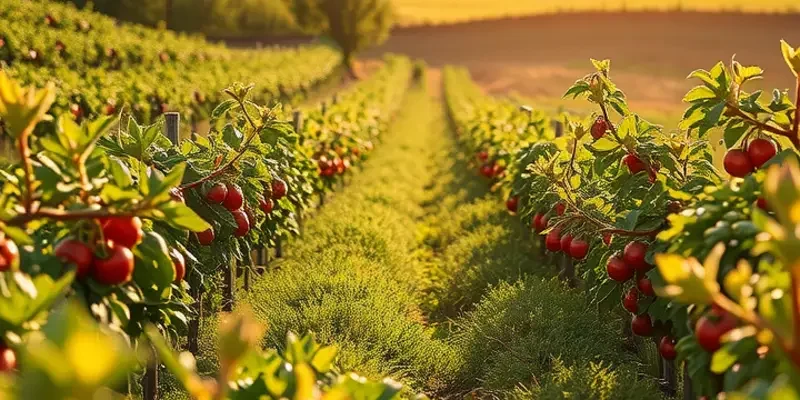Adopting simple plant-forward eating habits can significantly reduce your environmental footprint while promoting personal health. With the ecological challenges we face today, every meal presents an opportunity to make a positive impact. By incorporating more plant-based foods into your diet, you are not only nourishing your body but also supporting sustainable agriculture and reducing greenhouse gas emissions. This guide encourages anyone from seasoned vegans to curious omnivores to embrace eco-friendly food choices that are practical, delicious, and supportive of the planet.
Understanding Plant-Forward Eating: The Basics

Plant-forward eating encourages a meaningful blend of including more plant-based foods in our daily diet understanding that moderation is key. This approach doesn’t exclude animal products altogether but rather shifts the spotlight onto plant-based ingredients. Adopting plant-forward eating habits allows individuals to enjoy diverse food experiences while consciously reducing their carbon footprint.
Instead of staunchly adhering to vegetarianism or veganism, plant-forward eating proposes a more balanced approach. By moderating the consumption of animal products, you support not only your health but also environmental sustainability. The production of plant-based foods typically requires fewer resources and generates lower emissions than animal-based foods, making it a practical choice for eco-conscious consumers.
Delving into plant-forward ingredients, the variety is enticing. Fruits and vegetables are cornerstones, offering essential vitamins, minerals, and antioxidants that boost immunity and other bodily functions. Seasonal, locally-sourced options are fresher and travel shorter distances, minimizing transport emissions. Grains, like quinoa and barley, act as excellent sources of fiber and proteins, supporting digestive health and energy levels.
Legumes, including lentils and chickpeas, play a significant role in providing plant-based protein and are often celebrated for their low environmental impact compared to meat sources. Nuts and seeds, like almonds and chia seeds, offer heart-healthy fats that can replace less eco-friendly options. Together, these elements create a vibrant tapestry of flavors and nutrients.
Choosing plant-forward foods doesn’t mean giving up on flavor. Instead, it opens doors to culinary creativity. For guidance on using these ingredients, exploring substitutions and creative flavor enhancements can elevate meals without relying on traditional animal-based ingredients.
Implementing plant-forward choices benefits your health as well. A diet rich in plant-based foods can reduce the risk of chronic diseases, including heart disease, diabetes, and cancer. These ingredients are packed with fiber, supporting gut health and promoting satiety, aiding in maintaining a healthy weight.
From an environmental perspective, even small steps contribute to significant positive outcomes. Local ecosystems benefit as demand for less resource-intensive crops grows, preserving biodiversity and encouraging sustainable farming practices. Embracing a plant-forward lifestyle leads to reduced greenhouse gas emissions and water usage, essential factors in combating climate change.
In summary, plant-forward eating offers an approachable strategy for those looking to make impactful, sustainable choices in their daily lives. By emphasizing plants yet not excluding other food groups entirely, you nurture both your body and the planet, setting a foundation for future generations to enjoy a healthier world.
Practical Tips for Incorporating More Plants into Your Diet

Shifting to a plant-forward diet can be both simple and fulfilling. One effective way to start is by setting achievable goals, such as dedicating certain days to entirely plant-based meals. This gradual transition can ease the process and allow you to explore new flavors without feeling overwhelmed.
Start by identifying a day or two each week as ‘meatless,’ focusing on entire meals composed of vegetables, grains, legumes, and fruits. This strategy can boost your confidence in creating satisfying dishes that do not focus on meat as the centerpiece.
Embrace the seasonal and local produce available in your area. Not only is local produce fresher, but it also supports community farmers and reduces the carbon footprint associated with transporting goods. A trip to your local farmer’s market or a community-supported agricultural program can unearth a wealth of fresh options that can inspire your cooking.
When purchasing staples like grains and legumes, consider exploring bulk-buying options. Buying in bulk not only saves money but also minimizes packaging waste, promoting a more sustainable kitchen. Take reusable containers to zero-waste stores where available, enriching your pantry with essentials like quinoa, lentils, and oats.
Meal prepping is another cornerstone of a practical plant-centered lifestyle. Spending a few hours on the weekend preparing meals in advance can alleviate the pressure on busy weekdays. Focus on preparing versatile dishes that can be easily adapted with different sauces or additional ingredients throughout the week. For instance, pre-cooking rice or roasting a batch of seasonal vegetables can be the foundation for a variety of meals, reducing decision fatigue and ensuring nutritious choices are always within reach. Discover the joy of meal prepping with practical tips here.
Unleash your creativity in the kitchen by trying new, exciting plant-based recipes. Step outside your comfort zone to experiment with different spices, flavors, and cuisines that can elevate a seemingly simple vegetable into a culinary delight. Consider trying plant-based versions of your favorite dishes, or explore global cuisines known for their plant-focused meals, such as Indian or Mediterranean, which often naturally lean towards a rich variety of vegetables and spices.
By setting small, manageable goals and fostering creativity in your cooking, you can ease the transition into a more sustainable, plant-forward diet. This journey not only benefits your health but also contributes to a healthier planet, making your culinary adventures rewarding on multiple fronts.
Final words
Shifting towards a plant-forward eating approach presents an incredible opportunity to improve both your health and the health of our planet. Every small change in your dietary habits, from swapping a meat-centric meal for a vibrant grain bowl to trying your hand at new plant-based recipes, contributes to a collective effort that supports sustainability. Commit to making mindful, eco-friendly food choices that emphasize plant-based ingredients – the earth will thank you. You hold the power to contribute to a healthier future, one meal at a time. Start today; your body and the planet are counting on you.








